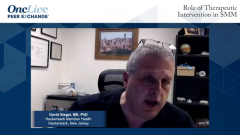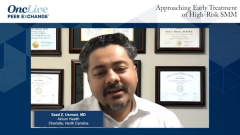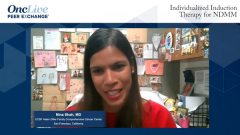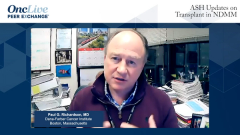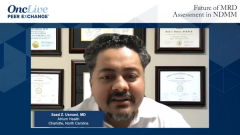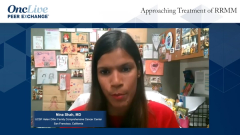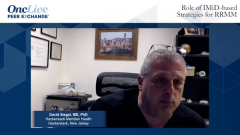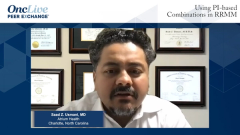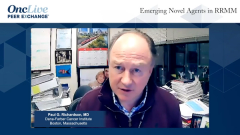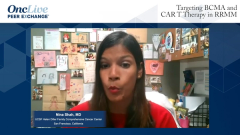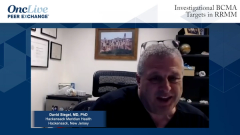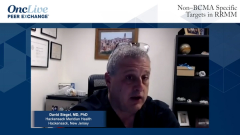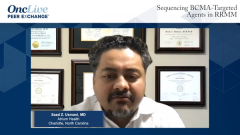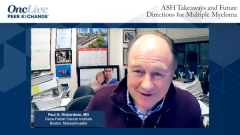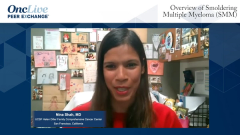
Sequencing BCMA-Targeted Agents in RRMM
Insights on approaching the sequencing of BCMA-targeted agents and whether antigen loss is considered an issue in RRMM.
Episodes in this series

Paul G. Richardson, MD: In that spirit, I’m going to ask Saad to comment. How might you think about sequencing BCMA [B-cell maturation antigen]-targeted agents? Do you think something as basic as antigen loss is an issue, or is that a proverbial red herring?
Saad Z. Usmani, MD: That’s an excellent question, Paul. I think the pattern of practice will be a little different for folks in the community compared to the academic centers. Even at the academic centers, David and Nina summarized the BCMA CAR [chimeric antigen receptor] T-cell therapy data in terms of efficacy, as well. I think it’s very likely regarding the bispecifics, if that kind of response rate holds true, it will likely be used more commonly than the CAR Ts. With the CAR T-cell therapy, the rate-limiting step at the apheresis chair is going to be an issue, and every institution will struggle with that.
For the antibody-drug conjugates [ADCs], I think they will pick up usage as community oncologists are able to orchestrate the care with their local ophthalmology clinics. Nina also shared the data with the pomalidomide-based combinations, and we know that David really likes pomalidomide, too. That combination would be nice. You’ll have a BCMA-directed ADC, and you’re utilizing the immunomodulatory and antimyeloma activity of pomalidomide to augment the responses. I believe Suzanne Trudel, MD, MSC, showed an overall response rate [ORR] of over 80% with that combination. I think there will be life for the ADCs in combination with immunomodulatory drugs, specifically.
It’s highly likely that we are going to use 1 BCMA-directed strategy in 1 line of therapy, and we will probably switch it out with another mechanism of action or groups of mechanisms of action with the next line of therapy. From there, we may perhaps rechallenge patients with another BCMA-directed therapy.
This issue of BCMA antigen loss is real, but at least with the early look at the data, that does not make up the bulk of patients who are progressing on BCMA-directed therapies. It will be an important piece to identify, because you won’t want to offer a BCMA-directed therapy to someone who has already lost antigen expression on their malignant cells, and perhaps FcRH5- or GPRC5D-directed therapies may be better for those patients. I think this is such an active area of research, and we’re probably going to be talking about data in a different light a year from now.
Paul G. Richardson, MD: I agree. I think the whole concept of sequencing is fascinating. We touched on isatuximab/daratumumab earlier. I do strongly feel that in [multiple] myeloma, unlike diffuse large B-cell lymphoma, it’s not going to be R-CHOP [rituximab, cyclophosphamide, doxorubicin, vincristine, prednisone], R-ICE [rituximab, ifosfamide, carboplatin, etoposide], R-EPOCH [rituximab, etoposide, prednisone, vincristine, cyclophosphamide, hydroxydaunorubicin]. I think it’s going to be DARA [daratumumab] in the up-front space, but then where do we go in relapse? I love the idea of deploying BCMA after CD38-targeting has failed, and then perhaps you bring in the CD38 behind the BCMA. And who knows when we start to combine the 2 together? That was a very nice summary, Saad, thank you very much.
Transcript edited for clarity.


